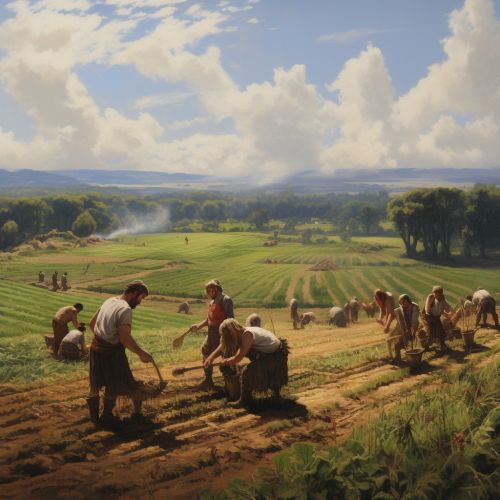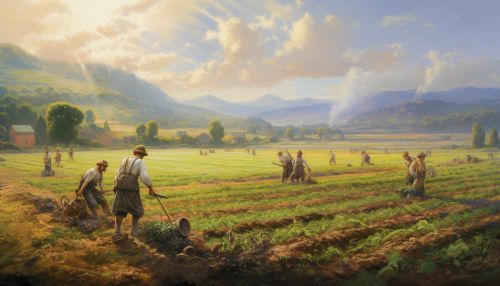Agricultural Science
Introduction
Agricultural science is the study of the practices involved in the field of agriculture. It encompasses a broad spectrum of topics such as biological, chemical, physical, earth, economic, and social aspects of agricultural production and management. Agricultural science is a multidisciplinary field that combines parts of various scientific disciplines, including botany, genetics, microbiology, chemistry, and environmental science.
History
Agricultural science began with primitive agriculture several thousand years ago where humans began to domesticate plants and animals. By the time of early civilizations, people were improving crop plants and animals through selection and breeding. As cultures developed, indirect evidence of the complexity of their agricultural practices increased.


Branches of Agricultural Science
Agricultural science is composed of several branches, each focusing on a specific aspect of agriculture.
Agronomy
Agronomy is the science of soil management and the production of field crops. Agronomists deal with interactions among plants, soils, and the environment, focusing on the science behind crop production and soil management.
Horticulture
Horticulture involves the cultivation of fruits, vegetables, and ornamental plants. Horticulturists apply their knowledge of botany, plant physiology, and genetics to effectively grow and reproduce plants.
Animal Science
Animal science is the study of the biology of animals that are under the control of humankind. It can be described as the production and management of farm animals.
Agricultural Engineering
Agricultural engineering applies engineering principles to agricultural operations, including machinery, structures, processes, and systems.
Agricultural Economics
Agricultural economics involves the application of economic methods to optimizing the production and distribution of food and fiber.
Modern Developments
Modern agricultural science is driven by continuous advancements in technology and research. These developments have significantly increased productivity and allowed for the mechanization of farming practices.
Genetic Engineering
Genetic engineering in agriculture has resulted in improved genetic traits in plants and animals. It has increased crop yields and improved the nutritional content of numerous crops, including corn, soy, and canola.
Precision Agriculture
Precision agriculture involves the use of advanced technology and data analysis to improve crop yields and reduce waste. It allows farmers to manage their resources more efficiently and make better decisions about their crop management practices.
Sustainable Agriculture
Sustainable agriculture is a way of farming that can be maintained for generations because it relies on renewable resources and conserves water and soil.
Future of Agricultural Science
The future of agricultural science lies in its ability to adapt and respond to the global challenges that are emerging due to climate change, population growth, and food security concerns. It is expected that agricultural science will continue to evolve and use more sophisticated technology in the future.
